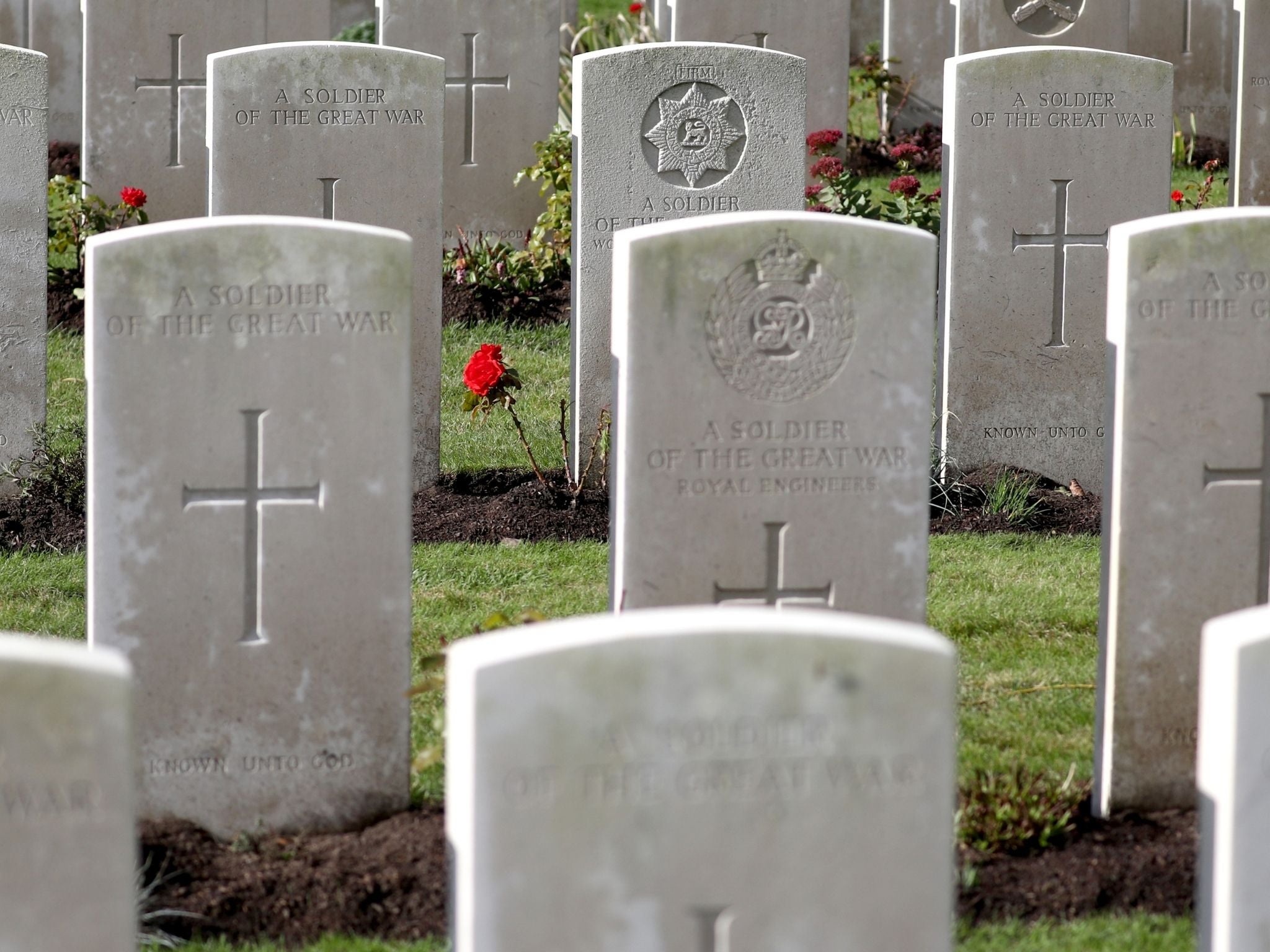‘Pervasive racism’ caused failure to commemorate Black and Asian troops, report finds
More than 100,000 Asian and African casualties of WWI ‘not commemorated by name or possibly not commemorated at all’

Your support helps us to tell the story
From reproductive rights to climate change to Big Tech, The Independent is on the ground when the story is developing. Whether it's investigating the financials of Elon Musk's pro-Trump PAC or producing our latest documentary, 'The A Word', which shines a light on the American women fighting for reproductive rights, we know how important it is to parse out the facts from the messaging.
At such a critical moment in US history, we need reporters on the ground. Your donation allows us to keep sending journalists to speak to both sides of the story.
The Independent is trusted by Americans across the entire political spectrum. And unlike many other quality news outlets, we choose not to lock Americans out of our reporting and analysis with paywalls. We believe quality journalism should be available to everyone, paid for by those who can afford it.
Your support makes all the difference.“Pervasive racism” underpinned a failure to properly commemorate potentially hundreds of thousands of predominantly black and Asian service personnel who died fighting for the British Empire, an investigation has found.
The Commonwealth War Graves Commission (CWGC) apologised after its investigation found that those individuals were not formally remembered in the same way as their white comrades.
The defence secretary, Ben Wallace, will give a statement to MPs on the findings on Thursday, when the report is formally published in full.
The investigation discovered at least 116,000 predominantly African and Middle Eastern First World War casualties “were not commemorated by name or possibly not commemorated at all”.
The figure could be as high as 350,000, according to the report obtained by the PA news agency after it was first reported by The Guardian.
Most of the men were commemorated by memorials that did not carry their names.
The investigation also estimated that between 45,000 and 54,000 Asian and African casualties were “commemorated unequally”.
Some were commemorated collectively on memorials, unlike those in Europe, and others, who were missing, were only recorded in registers rather than in stone.
The special committee behind the investigation was established by the CWGC in 2019 after a critical documentary on the issue, titled Unremembered and presented by Labour MP David Lammy.
Originally named the Imperial War Graves Commission, it was founded in 1917 to commemorate those who died in the war.
But the investigation found that the failure to properly commemorate the individuals was “influenced by a scarcity of information, errors inherited from other organisations and the opinions of colonial administrators”.
“Underpinning all these decisions, however, were the entrenched prejudices, preconceptions and pervasive racism of contemporary imperial attitudes,” it added.
One example given is based on communications in 1923 between FG Guggisberg, the governor of the Gold Coast colony, now Ghana, and Arthur Browne, from the commission.
At a meeting in London, it was said that the governor said “the average native of the Gold Coast would not understand or appreciate a headstone” as he argued for collective memorials.
A response from Arthur Browne showed “what he may have considered foresight, but one that was explicitly framed by contemporary racial prejudice”, according to the report.
“In perhaps two or three hundred years’ time, when the native population had reached a higher stage of civilisation, they might then be glad to see that headstones had been erected on the native graves and that the native soldiers had received precisely the same treatment as their white comrades,” he said.
In its response to the report, the CWGC says it “acknowledges that the Commission failed to fully carry out its responsibilities at the time and accepts the findings and failings identified in this report and we apologise unreservedly for them”.
In a statement CWGC director general Claire Horton said: “The events of a century ago were wrong then and are wrong now.
“We recognise the wrongs of the past and are deeply sorry and will be acting immediately to correct them.”
Mr Lammy, the shadow justice secretary, said: “No apology can ever make up for the indignity suffered by the unremembered.
“However, this apology does offer the opportunity for us as a nation to work through this ugly part of our history - and properly pay our respects to every soldier who has sacrificed their life for us.”
Press Association
Join our commenting forum
Join thought-provoking conversations, follow other Independent readers and see their replies
Comments